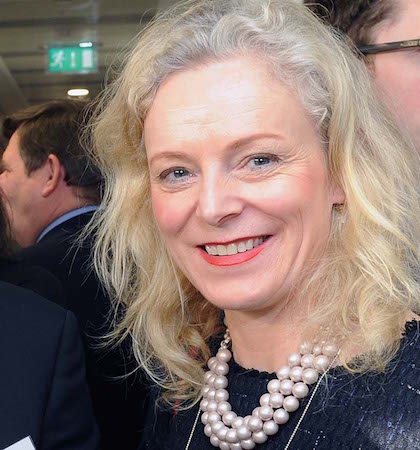IRISH women working in Britain have overtaken their male peers in terms of pay, according to a new study of gender and ethnicity.
Women from Ireland have made greater progress in pay since the 1990s than any other ethnic group of women living in Britain, the study found.
The research was conducted by the Fawcett Society, which campaigns for gender equality, using data from the Office for National Statistics and analysed by the University of Manchester.
Pakistani and Bangladeshi women in Britain are paid the least, earning 26 per cent less than their white British male peers.
The study also revealed black African women had made little progress since the 1990s and earned 20 per cent less than white British men, in stark contrast to Irish women.
 Global chair of the IIBN Liz Shanahan says people shouldn't be surprised by how much Irish women achieve in Britain (Picture: Malcolm McNally)
Global chair of the IIBN Liz Shanahan says people shouldn't be surprised by how much Irish women achieve in Britain (Picture: Malcolm McNally)On average, Irish women earned 17.5 per cent more than British and Irish men working in Britain last year.
Sam Smethers, chief executive of the Fawcett Society, said the high salaries of Irish women were “largely due to generational factors as they are more likely to be older, working full-time or in senior or managerial positions.”
Ms Smethers added that many ethnic minority women in Britain are "only where white British women were in the 1990s".
"For these groups this is a story of low labour market participation and low pay when they are in work together with high levels of unpaid caring work," she added.
"But it is important to consider how that gender inequality is experienced by different ethnic groups to ensure that all women in Britain see their gender pay gap closed."
Liz Shanahan, global chair of the Irish International Business Network, said that people shouldn’t be surprised that Irish women were doing so well in Britain.
“Ireland has an extremely well-educated workforce, of which women form a hugely vital part,” Ms Shanahan told The Irish Post.
“There are so many amazing Irish female entrepreneurs in Britain and we have truly stormed it here, so I don't see why people should be too terribly surprised.
"We're clever, we make huge efforts, we engage very well with people in the UK and we've done extremely well.”
Cecilia Gallagher, chair of the Women's Irish Network, echoed those senitments adding that said she wasn’t surprised to hear that pay had improved for Irish women in Britain.
“I am not surprised by this statistic, as many of the brightest and best women left Ireland due to the lack of opportunities,” Ms Gallagher said.
“Here in the UK, particularly London, the options are far greater and attract the very best.”
White Irish women also had greater earning power at £18.04 per hour, compared to £17.39 for men, the Fawcett Society found.
However, not every Irish woman in Britain will have felt the positive effect of the improvement of wages since the 1990s.
Claire O’Malley, an Irish nurse working in Birmingham, said that many women still had a difficult time living and working abroad in Britain.
“It’s great to hear that Irish women are doing so well over here but we mustn’t forget that many Irish women working in Britain still have it very hard,” she said.
“Nurses here have had their pay rise capped to 1 per cent and with so many of them being Irish, it just goes to show that many Irish women are still struggling.”

